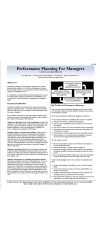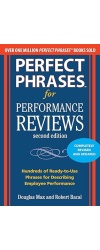Uncovering empty words, meaningless phrases, and other bullshit people fling.about
People say all sorts of things, and make all kinds of statements. Some of those are very meaningful, even profound and worth paying attention to. But a good percentage of what people say and write actually have no meaning whatsoever. Here’s an example. Tom is known to champion various positions and he says: “I am strongly in favor of individual rights and people taking responsibility”.
It may seem, at first glance, that this declaration tells you a lot about Tom’s position. It doesn’t really since it is so vague and general that it conveys almost NO content, no information about what Tom really believes and how he will behave. Conversations that follow such statements are generally wastes of time, as people act as if the sentence actually does have meaning. The conversation goes off track immediately unless clarification occurs from square one.
Meaningless utterances are part of normal human interaction. Still, it’s good to understand when utterances have real meaning, and when they don’t. Being able to distinguish between the meaningless and the meaningful can help us decide whether to enter into the discussion, or ask for clarification before continuing.
When Do Meaningless Utterances Occur

They occur during many kinds of conversation. In social conversation (interaction where the actual information exchanged isn’t important), they serve to oil the wheels of conversation, particularly between strangers. In that context they serve some very practical and social functions. They also occur in conversations that are highly charged or when one person has some sort of agenda that lies below the surface. The purpose of meaningless utterances is to convince, batter, or otherwise confuse people, when they occur in these emotional contexts.
So, how can you determine whether what someone says has any meaning at all or is just thrown in there for effect? You can apply Bacal’s Law of Meaningless Utterances.
Bacal’s Law of Meaningless Utterances
An utterance (what is spoken or written) is relatively meaningless if its opposite is impossible, nonsensical or otherwise ridiculous, subject to context.
Let’s go back to Tom’s statement: “I am strongly in favor of individual rights and people taking responsibility”. Can we apply Bacal’s Law of Meaningless Utterances to determine whether this statement means anything? Sure. What we do is we negate it. So we then get:
I am strongly against individual rights and believe people should NOT take responsibility for anything.
Now that we’ve negated the statement, we evaluate whether a normal, sane and rational person would say something like this. If you can’t imagine anyone (or most normal people) supporting the negation, then the initial statement is meaningless.
Here’s another example. At a party someone comes up and says to you: “The sky isn’t very green today, is it?” This one’s easy because the meaninglessness of this statement is so obvious that you don’t have to apply Bacal’s Law of Meaningless Utterances to determine that its nonsense. But it’s a good example. So, let’s negate it.
The sky sure is green today, isn’t it?
Subject to odd atmospherics, the revised comment above doesn’t make any sense because sky’s aren’t green. So we determine that if the negation makes no sense, the initial assertion makes no sense.
Applications
So what’s the use of this law? I can share how I use it.

First, someone using these over and over again in conversations is not likely to be willing or able to conduct a true dialogue about the specific issues. They may not be willing — or interested in discussion, but probably have an agenda to convince you of their position. They may not be able to conduct a useful discussion on the issue because they have an opinion without really have a grasp of the issues that should underlie that opinion.
So, when I see meaningless utterances (mainly on email discussion lists but it can be used this way anywhere), I know that it’s going to be a waste of my time to enter into the discussion.
Second, when I see meaningless utterances, and I really care about the other person, I will clarify the meaning of the utterance to see if there might be meaning but it hasn’t yet been presented. The reason this is useful is that because the initial statement lacks meaning, I, as the communication partner, will probably project MY meaning on the statement. MY meaning may have no correlation to the meaning intended by the initial speaker. So, if I want a meaningful dialogue with someone, I may need to clarify to tease out that meaning.
Finally, applying this rule can help you with your BS detector. If a statement appears to have no meaning, then you have to ask what the speaker is trying to accomplish in making a meaningless statement. That can lead you to the hidden agenda of the person involved or as important, help you conclude the person really doesn’t know what s/he’s talking about.
Conclusion
You can apply this law to all sorts of things. Of course like many things, it’s not an absolute, but it’s a useful tool to push your understanding of other people and what they are trying to accomplish with what they say and write.






